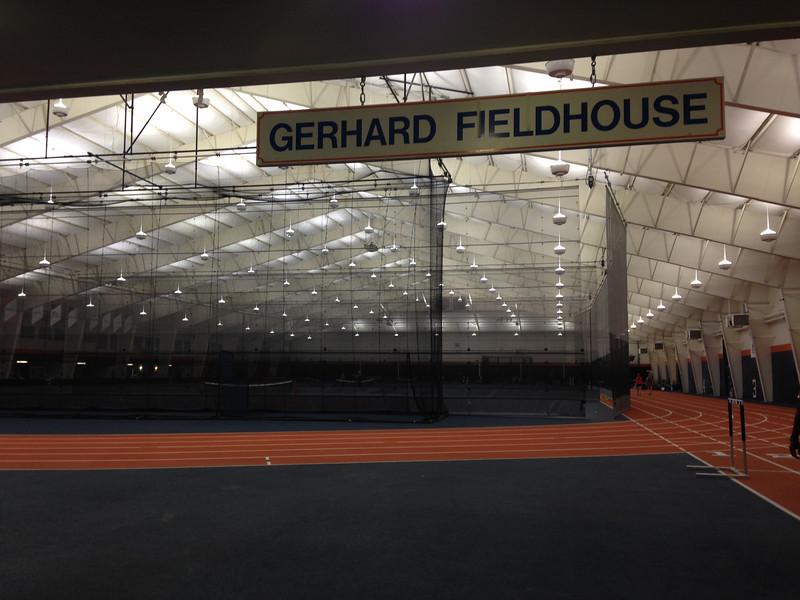Gerhard Fieldhouse goes green
September 12, 2014
As part of University efforts to become more “green,” the Facilities Energy Management Team retrofitted 112 light fixtures in Gerhard Fieldhouse to move from wasteful incandescent lighting to light emitting diode light fixtures. This will benefit not only the environment, but students’ experience with the field house as well as the University’s bottom line, according to the University’s website.
Incandescent light bulbs use electricity to heat a filament that gives off light. However, filaments burn out quickly because so much energy is passing through them, necessitating their replacement and contributing to their high environmental cost. The energy used is inefficient because the light is only given from heating a piece of metal, not from the direct translation of electricity into light. The direct translation is what LEDs do. They use less energy and last longer than incandescent bulbs.
The upfront investment of $106,000 will pay for itself in three years and is expected to save $1.2 million in operating costs over the course of the light bulb’s lifetime. The switch to LEDs will also reduce emissions from the field house by 13 million pounds of CO2 and each year will save 500,000-kilowatt hours of energy.
One benefit of the switch is the buzzing that blanketed the field house in the past is gone with the introduction of the new lighting system.
“I’ve noticed the lack of buzzing, it’s awesome!” Steven Robare ’17 said.
The lighting change is part of a wider shift towards a greener campus supported by the various University departments and organizations. Buildings like the KLARC and the O’Leary Center are introducing active metering, allowing for more accurate electricity use information. They are also automating many of their building systems in an effort to reduce the university’s carbon footprint and save money.
The Bucknell University Green Fund, a fund that provides start up money for student and faculty greening ideas, has stepped up in the past couple of years and is always accepting proposals for new ideas. Current proposals are looking at water waste and trash disposal around campus.






















